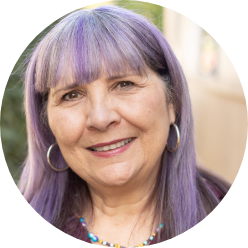Can adults be abandoned?
No, not in most cases.
What? How could I say such a thing? How could a coach or therapist say such a thing? Don’t they help people with ‘abandonment’ issues?
Let’s look at “What is abandonment”? Clients often express that they have been “abandoned”. Therapists worry that if they take a sick day, they have “abandoned” their clients. A couple breaks up and one partner feels “abandoned”. But what is abandonment?
Wikipedia defines “emotional abandonment” this way:
Emotional abandonment is a subjective emotional state in which people feel undesired, left behind, insecure, or discarded. People experiencing emotional abandonment may feel at a loss, cut off from a crucial source of sustenance that has been withdrawn, either suddenly, or through a process of erosion.
What happens when a child is “abandoned”? That child is left without resources. This is important because a child cannot gain their own food, housing, clothing etc. They can be truly discarded, left behind. A child does not have the physical or financial status to obtain their own means of life. This is one reason why we have laws about child abuse and neglect.
Many adults have suffered abuse and neglect as children. They have learned to identify their bereft feelings as “abandonment”. This is quite legitimate. An adult can re-experience feelings of abandonment. However, an adult cannot be abandoned in the same sense as a child. This may seem harsh. But consider what resources are available to most adults. Physical stature, brain power, ability to work at a job or career, ability to gain education—these are all elements of adulthood (in most cases). An adult who emotionally re-experiences the feelings of abandonment from childhood needs compassion and support. And, he/she will benefit from being reminded that he/she can use resources to get needs met, emotionally and physically.
Why is this important? Think about the victims of Hurricane Katrina. Many were left behind, left without any resources and the conditions of the environment and their injuries prevented them from helping themselves. They were abandoned by authorities who did not send help in a timely way. But adults suffering the loss of a relationship, for example, can seek the support of friends and professionals. They can take care of themselves by letting others know their needs. But others cannot grieve for them or feel their pain for them.
Adults can go through difficult times, including loss of loved ones, with empowerment. They can gain education about loss. They can distract themselves with life-affirming activities. They can live to love another day. They are not utterly without means of healing. They may feel ‘left behind’ but (in most cases) they are not in fact, left without. Feelings are real, however, not always founded on accurate information.
What can you do if your feelings of childhood abandonment are re-ignited by an adult event or circumstance? Practicing self-compassion is a great start. Having compassion for oneself means acknowledging the very real human emotions you are experiencing. It means giving yourself a ‘break’ in the sense of recognizing that as a human, you are going to suffer at times. You can pay acute attention to yourself, for a time. Remind yourself, via self-care, that you are worthwhile and have resources for support and sustenance. Exercise kindness to yourself in the form of good food, extra rest, joyful activity through art and music and spending time with nature. Reach out to friends and perhaps a professional such as a clergy person or psychotherapist. Get the support you need and recognize your ability to get it.
You can help yourself by making a list of your emotional resources. What does this mean? Another way to think about this is “resilience” qualities. How have you survived and thrived through other hard times? Do you have a great sense of humor? Determination? Perseverance? Ability to look beyond the present?
Tara Brach, noted author of works on acceptance and compassion, has created a model for working through difficult emotions. The four basic steps of RAIN are:
Recognize what is happening
Allow the experience to be there, just as it is
Investigate with interest and care
Nurture with self-compassion
As you can see, self-awareness is vital. If you are not aware of your needs and you do not consciously use your resources to meet those needs, you may fall into the trap of trying to unkindly employ friends or family members to rescue you from your pain. This is indirect and your kin may feel impatient and agitated with you—it doesn’t work and may alienate them. Support is not the same as taking over for you. You will feel abandoned all over again. The very act of trying to get others to rescue you results in self-abandonment. How? You are conveying to yourself that you are not capable of taking care of yourself. The support you get in this way may not seem genuine to you and you may reject it after all.
Adults can’t be abandoned. This may seem like a hard truth to digest but allow yourself to consider a new way of thinking about it. You may then find the freedom to directly ask for any support you may need at a difficult time.






